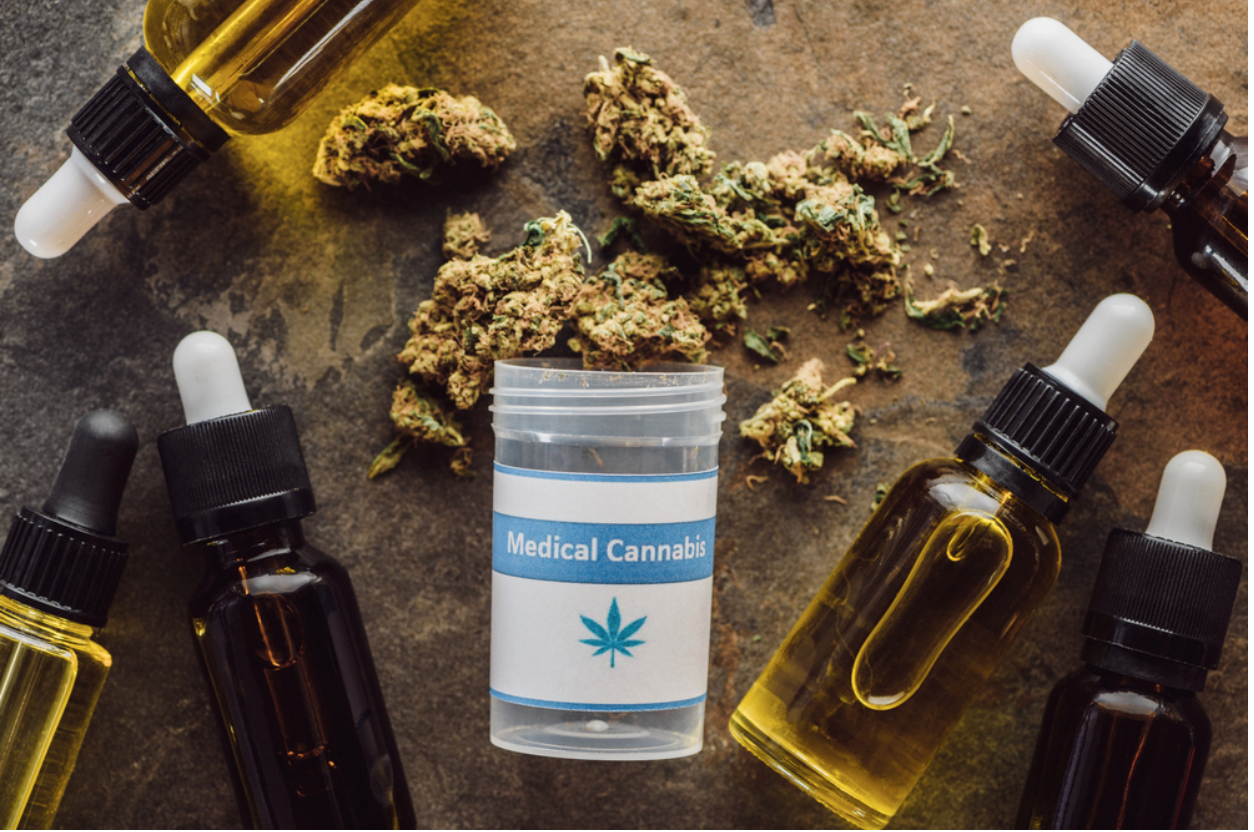Can You Bring Delta 8 on a Plane?

Delta 8 has quickly become one of the most talked-about cannabinoids in recent years. Whether you enjoy it in gummy form, through a vape pen, or as an oil tincture, it is clear that more people are incorporating Delta 8 into their daily wellness routines. And for those who travel regularly, it is natural to wonder: Can you bring Delta 8 on a plane?
The answer is not as straightforward as you might hope. Federal laws, Transportation Security Administration policies, and state-by-state regulations all play a part. On top of that, different types of Delta 8 products may be treated differently when it comes to airport security and baggage policies.
In this article, we will walk you through everything you need to know about traveling with Delta 8. You will learn what TSA says, how state laws might affect your trip, how to pack your products, and what you can do to avoid legal or logistical trouble while flying.
What Is Delta 8 and Why Do People Bring It on a Plane?
Delta 8 is a naturally occurring compound found in cannabis plants. It is closely related to Delta 9 THC, which is the more well-known version of tetrahydrocannabinol found in marijuana. However, Delta 8 tends to be less intense, producing milder and smoother effects according to many users. It is often praised for its ability to promote calm, support sleep, and provide subtle clarity without overwhelming the senses.
Because of these qualities, Delta 8 has become a go-to option for people who want to unwind during stressful moments. This includes air travel. Whether someone needs help relaxing on a crowded flight or wants to maintain focus during a business trip, Delta 8 can be a useful companion. THC Gummies are easy to pack, tinctures can be measured out precisely, and vape pens offer quick access to the effects people seek.
This growing interest in Delta 8 for travel brings up an important question. Are you allowed to bring it with you on a plane, or does that run the risk of getting into trouble?
TSA Rules: What Do They Say About Delta 8?
When it comes to air travel in the United States, the Transportation Security Administration is the agency in charge of screening passengers and baggage. But their main mission is not enforcing cannabis laws. Their focus is on security and making sure that dangerous items are not brought onto planes.
According to TSA’s official website, agents do not specifically search for cannabis or hemp-derived products. However, if they find something in your luggage that appears suspicious, they are required to refer the matter to local law enforcement. That includes any products that may contain THC.
The TSA does allow products that contain less than 0.3 percent Delta 9 THC on a dry weight basis, in alignment with the 2018 Farm Bill. The Farm Bill made hemp-derived products legal at the federal level as long as they meet this threshold. That means products like CBD and potentially Delta 8 could be allowed, provided they are derived from legal hemp and do not exceed the Delta 9 THC limit.
But TSA does not specifically mention Delta 8 in its policies. This creates a gray area. While a properly labeled Delta 8 gummy or tincture might pass through screening without issue, there is no guarantee that every TSA agent will recognize the difference. And that is where things get tricky.
Federal Law and Delta 8
Under federal law, Delta 8 that is derived from hemp and contains less than 0.3 percent Delta 9 THC is not classified the same way as marijuana. This is because the 2018 Farm Bill removed hemp and its derivatives from the list of controlled substances.
That sounds good on paper, but the situation becomes more complicated when considering how Delta 8 is made. Since Delta 8 occurs in small amounts in the hemp plant, most commercial products are created by chemically converting CBD into Delta 8. Some people argue that this makes Delta 8 synthetic, which could put it outside the protections of the Farm Bill.
Federal agencies have yet to offer clear, consistent guidance on this issue. Some statements from the Drug Enforcement Administration suggest that synthetically derived cannabinoids remain restricted. Others believe that since the source is hemp, Delta 8 remains protected under federal law. Until further clarification is issued, the legal status of Delta 8 at the federal level remains a topic of ongoing debate.
Carry-On vs. Checked Luggage: How to Pack Delta 8
If you decide to bring Delta 8 on a plane, knowing how to pack it matters. In general, products like THC gummies, capsules, and softgels are the easiest to travel with. These solid forms are less likely to raise concerns during screening, especially when kept in clearly labeled containers.
Liquids like tinctures must follow the same rules as all other liquids in your carry-on bag. That means they need to be in containers of 3.4 ounces or less and must fit in a quart-sized zip-top bag along with your other liquid items.
When it comes to vape pens and cartridges, there are specific rules you must follow. TSA requires that all vape devices and batteries be packed in your carry-on luggage, not your checked bag. This is because lithium batteries pose a fire risk in the cargo hold. Vape cartridges should be stored properly to prevent leaks and should never be used inside the airport or on the plane.
While these rules apply to the mechanics of travel, the legal aspect remains important. Even if you pack everything according to TSA guidelines, you still need to make sure Delta 8 is legal in both your departure and arrival locations.
Domestic Flights vs. International Flights
Domestic Flights Within the United States
Flying with Delta 8 within the United States is technically possible, provided your product meets federal hemp guidelines and your route does not include a state where Delta 8 is banned. Some states have laws that make Delta 8 illegal, even if it is derived from hemp and meets the federal definition.
This means you need to research the laws of both the state you are flying from and the state you are flying to. For example, if you depart from Florida, where Delta 8 is widely available, and land in Colorado, where Delta 8 has faced restrictions, you could run into problems upon arrival. Even if TSA does not confiscate your product, local authorities at your destination might take issue with it.
International Flights
Bringing Delta 8 on an international flight is not recommended. Many countries have strict cannabis laws and do not distinguish between Delta 8, Delta 9, or even hemp-derived products. Getting caught with any form of THC in a country where cannabis is banned could result in serious consequences, including fines, arrest, or being denied entry.
Even if Delta 8 is legal where you are flying from, it is not worth the risk of traveling internationally with it. When crossing international borders, customs authorities are more likely to inspect your belongings, and they may not be familiar with the legal nuances of cannabinoids.
State Laws Matter More Than You Think
One of the most confusing aspects of traveling with Delta 8 is how state laws influence the experience. Even though federal law may allow for hemp-derived products, individual states have the power to enforce their own rules. Some states have embraced Delta 8, while others have chosen to ban or restrict it.
States like Texas, Florida, and Indiana currently allow the sale and possession of Delta 8 under specific conditions. Others, like Alaska, Idaho, and Vermont, have placed restrictions or outright bans on Delta 8. These rules can change quickly, and it is important to check for updates before you fly.
If you travel into a state where Delta 8 is not legal, law enforcement may treat it as an illegal substance. This could lead to fines, confiscation, or more serious legal trouble. To avoid this, take a few minutes to look up the Delta 8 regulations for your destination before packing your bags.
Tips for Traveling with Delta 8
If you are still considering flying with Delta 8, here are some helpful tips to keep your trip smooth and stress-free:
- Keep products in original packaging. This makes it easier to identify the product and shows that it is professionally made and properly labeled.
- Print out the Certificate of Analysis. This is the third-party lab report that shows your product contains less than 0.3 percent Delta 9 THC. It can help prove that your Delta 8 is hemp-derived and legal.
- Use solid forms whenever possible. THC gummies, capsules, or tablets are less likely to draw attention than vape pens or tinctures.
- Avoid using Delta 8 at the airport or on the plane. Even if you legally bring it with you, using it in public or during your flight can create problems.
- Check the laws of your departure and arrival states. Legal status can vary significantly from one place to another.
- Pack vape pens correctly. Always place vape batteries in your carry-on and make sure they are turned off.
What Happens If TSA Finds Delta 8?
If TSA agents find Delta 8 in your bag, several outcomes are possible. If your product is clearly labeled, compliant with the Farm Bill, and legal in both departure and arrival states, TSA may allow it to pass through without issue. Many travelers report getting through security with Delta 8 products as long as they are transparent about what they are carrying.
However, if the product is not labeled, contains too much THC, or raises suspicion, TSA may refer the matter to local law enforcement. This does not always result in penalties, but it can delay your trip or create unnecessary complications.
The key is to remain calm, respectful, and cooperative if questioned. Being honest about what the product is and offering documentation can make the process go more smoothly.
What to Do If You Cannot Bring It
If you are flying to a location where Delta 8 is restricted or you simply do not want to deal with the uncertainty, you have a few other options.
One choice is to see if you can legally order Delta 8 from a local vendor at your destination. Many states with legal Delta 8 have shops that carry these products or allow online delivery.
Another option is to consider mailing Delta 8 to yourself if you are staying in a private residence or Airbnb. However, this should only be done if you are absolutely sure the product is legal in the state where you are sending it.
Finally, if you are traveling for a short time and need something for relaxation or stress relief, you might explore other wellness alternatives like CBD or herbal teas that are easier to travel with and come with fewer legal questions.
Final Thoughts
Traveling with Delta 8 is possible in many situations, but it is not without risks. The product needs to be derived from hemp, contain less than 0.3 percent Delta 9 THC, and comply with both federal and local laws. TSA does not actively look for cannabinoids, but they will refer any questionable items to local authorities if needed.
By doing a little homework before your trip and following smart packing practices, you can lower your risk of running into trouble. Keep everything in its original packaging, bring lab reports when available, and never bring Delta 8 into a state or country where it is not clearly legal.
When in doubt, do not bring it. It is better to enjoy your trip in peace than to risk delays or legal headaches.
